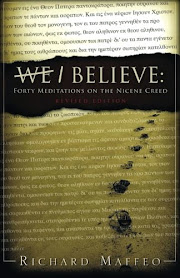When I was a child, I
talked like a child, I thought like a child, I reasoned like a child. When I
became a man, I put the ways of childhood behind me. (1 Corinthians 13:11)
When I was 12 or 13 I prayed a nightly prayer as I prepared to go to sleep: “Oh, God, please God. Don’t let anything
happen to me, Andrea (my sister), my father or my mother.” Night after
night. For two or three years, if my memory is reliable.
I
don’t know how I came up with that prayer, how I formulated it in my
pre-adolescent mind, or why I prayed it each night. I never heard my parents
pray, other than once a year during Rosh Hashonna when mom prayed over the
Yahrtzeit candles for her deceased mother.
Now that I think about it, more than 50 years later, I probably learned
to pray from watching movies on television.
“Oh God, please God,
don’t let anything happen to me, Andrea, my father or my mother.
In more recent years, however, I’ve wondered
what might have happened to my fledgling faith if something bad did happen to me, Andrea, my father, or
my mother. As a child who thought like a child and reasoned as a child, would I
have put aside my childish faith? Would I have been angry at God, thought Him
impotent, or uncaring, or absent, for permitting something serious to fall over
us? I’ve talked with many people in the last 40 years of my walk with the
Savior to whom exactly that had happened. They’d prayed fervently, sometimes
day after day for years for a loved one, or for themselves, for good to happen
– and the opposite occurred. Death. Divorce. Loss . . . .
Although
this is speculation on my part – I like to think if something bad had happened to one of us, and I laid
aside my youthful faith, I like to think that when I became a man I would have
recovered from my earlier rejection of God. I like to think I would have grown
to know God for who He really is: Not impotent, but almighty. Not uncaring, but
the very essence of love. Not absent, but always with me, never leaving me,
never forsaking me.
Why do prayers sometimes – some might say
many times – why do they go unanswered? Why do loved ones – even children --
die in accidents, or by illness, or murder, or suicide or . . . . ? Why do lovers separate?
Why
do bad things happen to God’s people?
Once
upon a time, I thought I knew why. I could cite a dozen reasons, and come up
with as many scriptures to explain God’s actions or inactions. But now, after
so long walking with Jesus, I confess I am no longer sure why He does what He
does, or does not do what He does not do.
“For
now we see only a reflection as in a mirror,’ St. Paul continued
in his 13th chapter of 1 Corinthians. ‘[But] then we shall see face to face. Now I know in part; then I shall
know fully, even as I am fully known.”
After
all the decades of unanswered and sometimes desperate prayers I’ve lifted
toward heaven, I now believe faith in God – faith that abides despite dead
loved ones, or divorce, or long and arduous sickness, or any other terrible
trial that falls so often over so many of God’s children – I now believe a
stick-to-it faith in God is nothing less than a supernatural gift He gives to
those who still seek Him, even after
terrible and unyielding disappointment.
I
believe abiding faith is as great a supernatural gift, it is as great a grace,
as that of being healed of sickness, or resurrected from a dead relationship.
It’s the kind of grace that enables us to put childhood thoughts and reasoning
behind, and fix adult eyes on things unseen, or unknown -- and simply be
content with that.
I
wish I had a better answer – for myself, and for those who ask me the often
unanswerable question, “Why?”
And
so I continue to pray, “Oh, God! Give us your gift, give us your grace to say –
even from the depths of our personal hell: “Jesus, I trust in you.”

